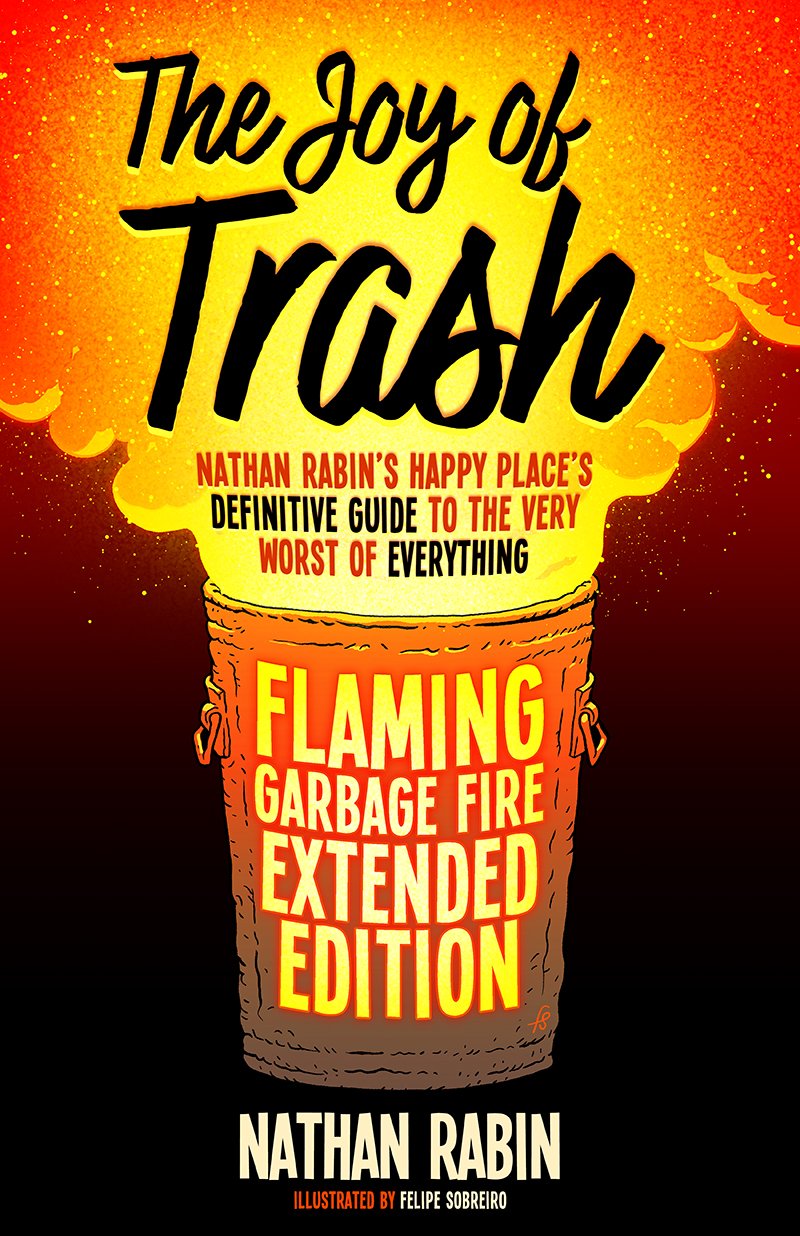1962's Two Weeks in Another Town is a Flawed but Fascinating Follow-Up to The Bad and the Beautiful
There is a remarkable scene in Vincente Minnelli’s 1962 melodrama Two Weeks in Another Town where troubled actor Jack Andrus (Kirk Douglas) watches one of his old movies, a lush black and white show-business drama, as a reminder that before a personal and professional downward spiral sent him to the loony bin, he was capable of greatness.
What makes this moment so remarkable is that Andrus isn’t watching a phony movie concocted by the screenwriter as part of the protagonist’s backstory. No, the movie we’re watching is a movie the writer, director, producer and star of Two Weeks in Another Town made together a decade earlier. It’s a movie that was destined to cast a long, intimidating shadow over Two Weeks in Another Town even if it wasn’t directly referenced in the film itself.
The film is 1952’s The Bad and the Beautiful and in this fascinatingly meta moment, the behind-the-scenes drama and conflict become the onscreen drama and conflict. While a wobbly Jack Andrus seems sufficiently inspired that he’s capable of greatness, the people behind the troubled production the film chronicles, most notably Jack’s longtime director, mentor, enemy, rival and finally frenemy without benefits (hey, relationships between men can be complicated) Maurice Kruger (Edward G. Robinson) understandably seem worried that they aren’t capable of making a masterpiece like The Bad and the Beautiful again. They seem justifiably afraid that their best days are behind them, and that the future looms as a long, forced march to retirement and irrelevancy.
It seems safe to assume that the actors and crew of Two Weeks in Another Town were equally worried that they also were incapable of making another movie like The Bad and the Beautiful. Minnelli’s days as a top working director were drawing to a close, Kirk Douglas’ career was unmistakably on a downward slope, commercially and creatively. Screenwriter Charles Schnee, who won the Academy Award for best screenplay for The Bad and the Beautiful, died a year after Two Weeks in Another Town flopped while producer John Houseman, who had credits like, oh, I dunno, producing Citizen Kane on his resume, would actually go on to much greater public fame, albeit only after reinventing himself as a dour character actor and the personification of gloomy WASP authority thanks to his career-making performance in The Paper Chase.
To add another level of meta commentary, The Bad and the Beautiful is itself about a larger-than-life producer (played by Douglas, of course) trying to reconcile with old collaborators he betrayed for the sake of making a comeback movie. That’s an awful lot of weird, self-referential baggage for one movie, and Two Weeks in Another Town not only failed to repeat The Bad and the Beautiful’s success: it was actual a sizable flop, for reasons that are pretty easy to understand.
A European travelogue in vivid color where The Bad and the Beautiful was quintessentially American and black and white, Two Weeks in Another Town opens with troubled actor Jack Andrus in a psychiatric institution after having a huge public breakdown. He’s frustrated and bored so when an opportunity presents itself to travel to Rome and work with Kruger again, he seizes it, only to arrive in Rome and discover that the situation is far more complicated than he imagined.
George Hamilton costars as the troubled star of Kruger’s troubled production but he seems on hand primarily to embody the whiny uselessness of the younger generation. In Two Weeks in Another Town, alpha-male Douglas looms large as an old lion, Edward G. Robinson looms even larger as an even older lion, and George Hamilton thoroughly embarrasses himself as a confused little fawn. The character is supposed to be dark and tormented and sexy in a young Marlon Brando/James Dean kind of way. Instead, he seems like a gangly, featherweight fool forever devolving into childish temper tantrums.
The Bad and the Beautiful was unashamedly operatic in its feverish, outsized emotions. Two Weeks in Another Town operates in an even higher emotional frequency. It’s a movie where characters don’t talk to each other so much as they shout whole angry monologues at the top of their lungs. It’s a movie that makes a point of going crazily over-the-top. I was reminded at times of The Spoils of Babylon, the Will Ferrell-produced parody of bloated mini-series like Rich Man, Poor Man, which, like Two Weeks in Another Town, was based on a best-seller from Irwin Shaw.
Minnelli wasn’t too big on subtlety at this point in his career and in Douglas, he had an actor who seemed to find the concept of “understatement” a personal affront. It’s remarkable that the European film industry was able to continue after the film’s making, considering that Douglas seems to have devoured all of the scenery in western Europe, and would have kept going and eaten all the scenery in Eastern Europe and The Soviet Union if the Russians hadn’t famously pointed nuclear weapons at Douglas to keep him from feverishly over-acting all over the Iron Curtain and Soviet bloc.
Before I re-watched Two Weeks in Another Town, I thought Douglas played a producer in this movie, just as he did in The Bad and the Beautiful. I was wrong, but it’s easy to see why I could confuse The Bad and the Beautiful, where Douglas played a filmmaker who behaves in real life like a ham actor, with his character in Two Weeks in Another Town, who is a ham actor onscreen and off before making a transition into filmmaking after Kruger becomes too sick to finish his film.
Two Weeks in Another Town both benefits and suffers from being hopelessly linked in the public mind to one of the greatest show-business melodramas of all time. Within the context of Minnelli’s career, it’s the kind of prickly, divisive and strange minor effort that auteurists, contrarians and other fans of the obscure and semi-obscure might single out as a personal favorite to establish their funky, unexpected taste.
There’s a lot in Two Weeks that just does not work. Hamilton is so weak and ineffectual he stops just short of breaking the fourth wall so he can apologize to the audience for his performance. The women in the film are thinly drawn, and Jack’s romance with an Italian beauty is little but a distraction. Yet Two Weeks in Another Town retains a distinct fascination all the same, in part because it is so unabashedly vulgar and lurid and excessive in its storytelling. Minnelli made a lot of great melodramas, but what Two Weeks in Another Town lacks in greatness, it makes up in melodramatics.
Two Weeks in Another Town uses rear projection so extensively, and with such a purposeful disregard for verisimilitude that its phoniness begins to feel intentional. It’s as if whenever Jack Andrus gets behind the wheel of a car, we stop watching the action objectively, from the perspective of an unseen God, or at least an ace cinematographer, and begin to see the world from Jack’s point of view. And Jack’s point of view is hopelessly frazzled by booze, by mental illness, by pressure, by fear and sadness and insecurity. Jack sees the world as an impressionistic blur, exciting, scary and wild all at the same time, and when we’re unfortunate to be spending time inside his head, that’s how the world looks to us as well.
Minnelli’s film uses rear projection extensively throughout, but never as unforgettably as in a climax where Jack, in a fit of drunken rage and self-destruction, attempts vehicular suicide (with a lovely lady in the passenger side, alas) as he angrily races around the road, spinning madly for what feels like hours without killing himself or his passenger.
In this crazed, go-for-broke sequence, any illusions to realism are abandoned and the movie becomes abstract, impressionistic, damn near experimental in its stylization. Moments like these, scattered throughout the film, where the melodrama becomes so white-hot that it threatens to burn up the screen, help explain why Two Weeks in Another Town is utterly fascinating, particularly within the context of its star, writer, producer and director’s careers, even if it flies off the rails periodically. Two Weeks in Another Town is beautiful throughout, and enjoyably bad at times, even if it’s doomed to never be The Bad and the Beautiful, but rather its weird, simultaneously over and underachieving lesser sibling.
Check out my newest literary endeavor, The Joy of Trash: Flaming Garbage Fire Extended Edition at https://www.nathanrabin.com/shop and get a free, signed "Weird Al” Yankovic-themed coloring book for free! Just 18.75, shipping and taxes included! Or, for just 25 dollars, you can get a hardcover “Joy of Positivity” edition signed (by Felipe and myself) and numbered (to 100) copy with a hand-written recommendation from me within its pages. It’s truly a one-of-a-kind collectible!
Or you can buy The Joy of Trash from Amazon at https://www.amazon.com/Joy-Trash-Nathan-Definitive-Everything/dp/B09NR9NTB4/ref=tmm_pap_swatch_0?_encoding=UTF8&qid=&sr= but why would you want to do that?
Check out my new Substack at https://nathanrabin.substack.com/
And we would love it if you would pledge to the site’s Patreon as well. https://www.patreon.com/nathanrabinshappyplace







